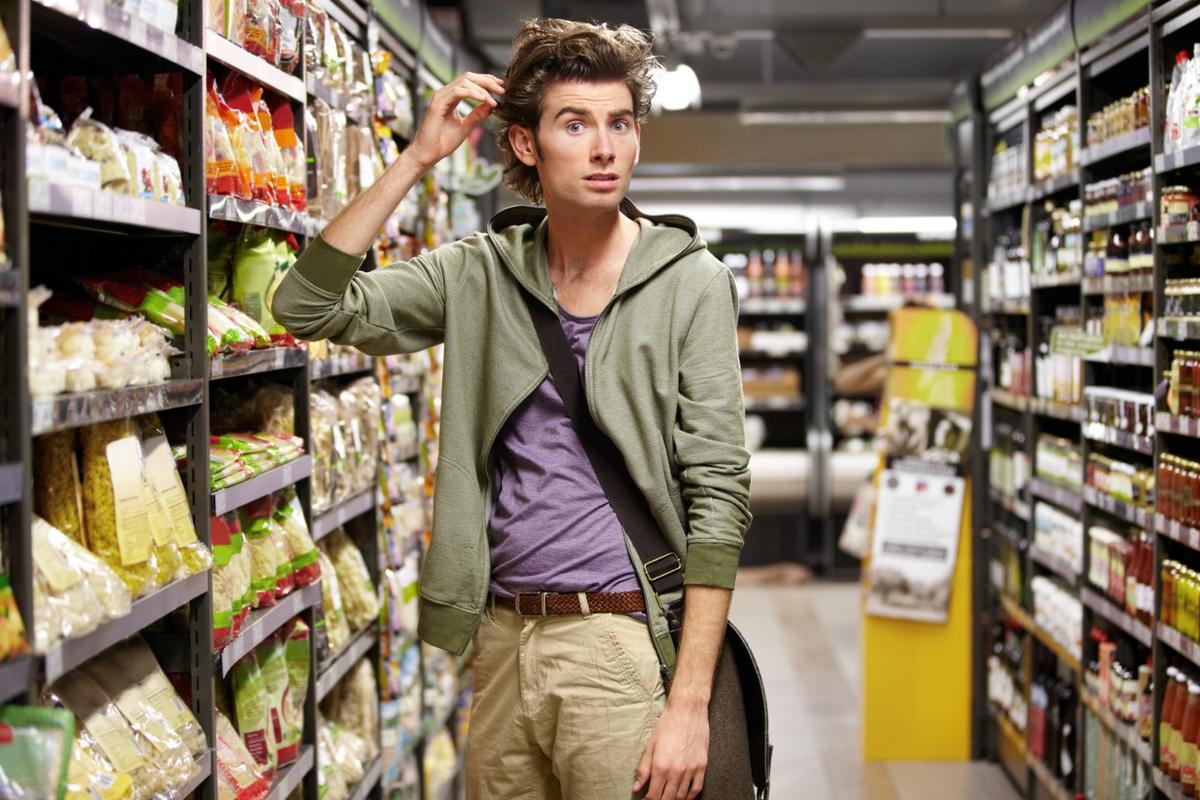For some of us, a trip to the grocery store is an adventure filled with tantalizing new discoveries and opportunities to indulge in new foods and cuisines.
For others, it’s a tedious chore consisting of costly distractions and endless confusion, not to mention squeaky shopping cart wheels.
READ MORE: Is the Viral 6 to 1 Grocery Shopping Hack Worth the Hype?
Whichever category you fall under, grocery is a business, operating within a highly competitive industry with very slim profit margins. They have developed strategies to make sure you visit often, and regardless if you are having fun in the produce section or not, they want you to spend your hard-earned dollars with them.
These aren’t secrets, but awareness is everything when you are keeping an eye on your wallet.
Grocery Store Secrets
There’s More Behind the Store’s Layout Than You Think
We’ve all been there. “Honey, I’m just picking up what we need for dinner and I’ll be home in 20 minutes!” Nice try. Real Simple points out that everything is situated in a specific place for a specific purpose.
READ MORE: Amazon Ditching Just Walk Out Technology in Stores
Notice that the flowers are located right at the entrance? Just like a house with fresh flowers is more inviting, so is a grocery store. That said, flowers are usually a last-minute purchase, so it’s more convenient for you.
Produce and bakery aren’t much further away, both enhancing that sense of freshness. Most obvious are those quick convenience products like gum and candy located at the cash register ready to grab your attention while you’re waiting. We all know they are there for that reason — yet we all fall for it. Again, not necessarily a bad thing.
Grocery Store Secrets
End-of-Aisle Displays Aren’t Just a Convenient Way to Show You New Things
While you may assume that end-of-the-aisle displays (known as “endcaps” in the grocery biz) are designed to showcase sale items and snag you some big savings, it’s usually the opposite. TheKitchn explains that these prime locations are used by stores to highlight new products and even discontinued items.
READ MORE: New USDA Estimates Show Shocking Cost of Grocery Inflation
Trader Joe’s, for example, expertly groups similar items together as bundles, enticing customers to purchase complementary products. For example, if you enjoy their autumn harvest soup, you’re more likely to pick up the roasted apple crackers and some pumpkin spice cake to accompany it (I made those up, but they sound pretty good.)
Grocery Store Secrets
Companies Will Pay Big Bucks to Have Their Products at Your Eye Level
The grocery business is not easy, to say the least. So in addition to some areas of the store fighting for your attention, companies can buy their way into the spots where your eyeballs are most likely to go.
Areas like the aforementioned endcaps are one of those spots, as are the shelves at eye level. In an episode of NPR’s All Things Considered, Cardiff Garcia explained that the system is quite complex: “… a lot of it is based on fees that manufacturers … pay to store owners. And a fee structure to help determine product placement at a grocery store may sound simple—it really is not.”
Grocery Store Secrets
That Mist in the Produce Section Might be as Much for You as It Is for the Produce – and That’s OK
Few things are as theatrically mysterious as those misters that turn a simple kale-grabbing moment into a trip to the local splash pad. Even produce needs to stay hydrated, but do we actually know if the sprinkler show is for the produce or our own enjoyment? As always, it depends on who you ask.
READ MORE: Most Expensive Grocery Store in U.S. Makes Whole Foods Look Cheap
While some experts divulge that misting will add as much as 5% to the produce’s weight (more $$$) it’s really tough to find a definitive answer. We’ll go with no. Does it help the producer look fresher? Sure. Would you rather have produce not misted and looking drab and dry as a dusty box in your attic? Probably not.
One thing that is pretty certain is that the misters are not cleaning your veggies, so give that broccoli a good scrub before you get to choppin’.
Grocery Store Secrets
The Music May Make You Buy More Groceries
We all experience that moment when you realize that your local grocery store is playing your favorite jams while you’re looking for your favorite jam. Nothing wrong with that. But can music make you buy more? Not that easy.
A 1982 study found a relation between the tempo and time spent shopping: The slower the song, the longer you stay. The faster the song, the quicker you leave. Slow jams for the win!
That said, music programmers for grocery stores in the present day spilled the beans (clean-up in aisle 5!) that “music selection isn’t there to sell you on specific items or price points.”
Grab a Basket, Go Shopping and Have Fun
While grocery stores may appear to be all about convenience, it’s no easy feat to capture your attention. With these “not-so-secrets” in mind you are now ready to navigate the aisles with confidence.




Leave a Comment